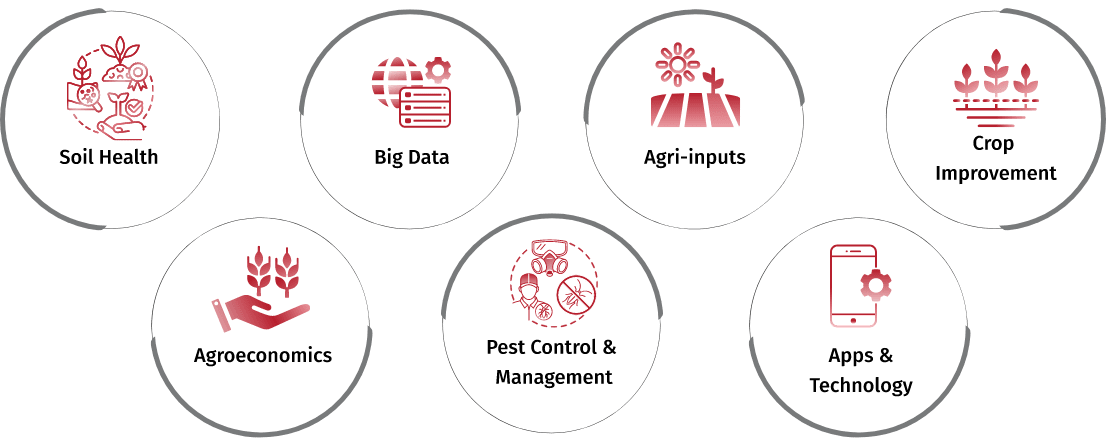Dr. Larry Walker Co-Director CASCADE / Adjunct Professor Somaiya Vidyavihar University Michigan State UniversityProgramme Leader

Our Thematic Areas

The Regenerative Agricultural System Programme is developed, operated and managed by teams of academics, researchers, farmers and stakeholders. Universities Research Centre Farmers IndustryCollaborations for Sustainability
Interconnectedness is the key to unlock and address problems There is a pressing need to strengthen rural local communities around the world to tackle global challenges like climate change, finite supplies of phosphorus and potassium, high water utilization rates, rapidly changing pathogen and insect pressure, synthetic fertilizers, and overuse. Education, Research, Innovation Communication and Outreach are the five approaches to address this. We integrated them in one programme. We plan to address biotic and biotic factors ‘above’, ‘below’, and ‘around’ the ground that influence soil health and plant production. The initial questions that we pose ourselves to answer are - How to prevent salinity in soil? What is the science behind traditional liquid manure? How do farming practices, ( intercropping, organic agri-inputs, and drip irrigation ) individually and synergetically influence soil organic carbon? Which intercropping practice will help in nutrient management and revenue generation? We are a team of specialists from microbiome science and engineering, plant breeding, pathogen and insect management, soil chemists and physicists, entomologists, agricultural engineers, agroeconomists, meteorologists, sociologists, data scientists, systems engineers, and outreach specialists working with farmers and other stakeholders to co-design regenerative agricultural systems. We aim to strengthen the research and outreach support provided by Godavari Biorefineries Limited to smallholding farming communities at Sameeerwadi, Karnataka by helping to choose the best farming practice, select the economically rewarding combination of intercrops, and manage the farms through technology. Simultaneously, we will work towards providing a greener supply chain option to both benefactor and beneficiary. Our first-year plan is to conduct extensive need-based analysis centered around 18,000 farmers to build datasets and define quantifiable metrics.The 5 Ws

Why a programme in regenerative agriculture system?

What do we address?

Who are we?

Whom do we serve?

What is our plan?